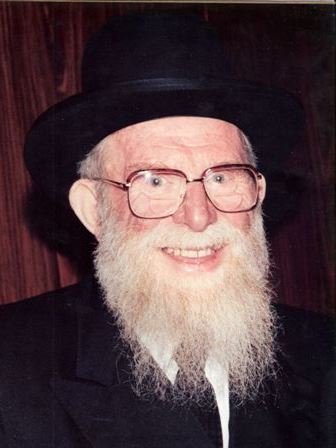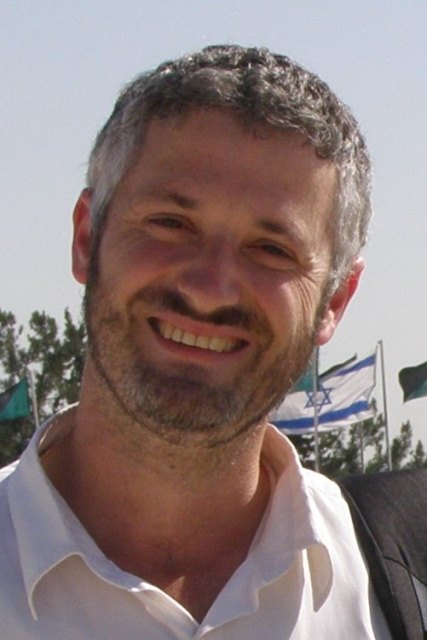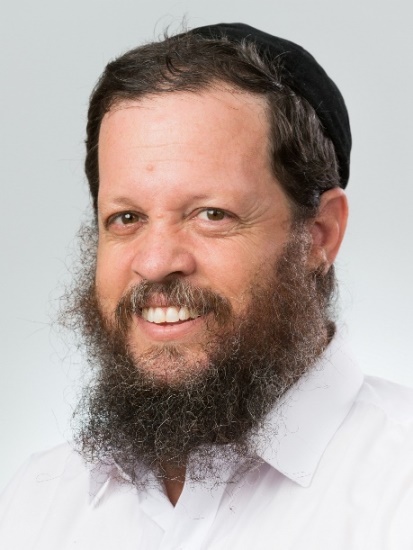The Ultimate Goal of the Mishkan
הרב חיים יעקב גולדוויכט
מרן ראש הישיבה זצ"ל
It says in the Midrash (Shemot Rabbah 33:1):
"Let them take for Me a portion." Is there any purchase that the seller is sold with it? G-d said to Israel: I sold you My Torah. As it were, I was sold with it, as it says, "Let them take for me a portion." This is comparable to a king who had a lone daughter. One of the kings came and took her as a wife. He wanted to go back to his country and to take his wife. The king said to him: My daughter that I gave to you, is [my] only one. To separate from her, I cannot. To tell you, "Do not take her," I cannot, because she is your wife. Rather, do me this favor, that wherever you go, make a little room for me so that I can live with you, because I cannot leave my daughter. So, too, G-d said to Israel: I gave you the Torah. To separate from it, etc. Rather, wherever you go, make one house for Me that I may dwell in it, as it says, "They shall make a Sanctuary for Me, so that I may dwell among them."
The analogy in this parable is very difficult. We do not find that there is a desire of Am Yisrael to distance from G-d that he needs to ask them to find a little room for Him to live in, as we find in the metaphor, where the husband wanted to take the king's daughter away?
In the portion of the blessings in Parshat Bechukotai, it says, "I will place My Sanctuary among you; and My Spirit will not reject you. I will walk among you, I will be G-d unto you and you will be a people unto Me." (Vayikra 26:11-12)
What is the repetition of the promise, "I will place my Sanctuary among you" and "I will walk among you?" The meaning of the first phrase is clear, that G-d's Presence will dwell in the Mikdash, but what does the second phrase add?
R. Ovadia Sforno explains that if we think that the goal of our prayers that the Temple be rebuilt is so that G-d will dwell there amongst us through His Presence there, in the Temple – we are mistaken! This is only the beginning of the process, but the culmination of this ideal is that the Presence should spread forth and walk in every place without the intermediary medium of the Temple: "In my heart I will build a Mishkan." This is alluded to in the verses, that the result of "I will place My Mishkan among you," is only "I will not reject you." However, when we merit, "I will walk among you," then the promise, "I will be G-d unto you," will be fulfilled. Not only will the rejection of Am Yisrael be annulled, but there will be great closeness. This will happen only through, "If you will follow my decrees" – that you will toil in My Torah, i.e., complete dedication to Torah and mitzvot.
Some maintain that the entire commandment of constructing the Mishkan was given to Israel only after the sin of the golden calf, and its entire goal was to atone for this sin. This is also the idea of the half-shekel:
"This they shall give." – Come and see the fondness of Israel, that their sins bring them to great heights ... Here, too, what caused the tribes in the portion of the shekalim to give the atonement of their souls? The sin of the [golden] calf. (Tanchuma Ki-Tisa 2)
"They shall take for me a portion" – this is what it says, "I am sleeping, but my heart is awake" ... "I am sleeping" from the sin of the [golden] calf, "but my heart is awake" ... "they shall take for me a portion." (Shemot Rabbah 33:3)
This is well explained based on what was cited from the Sforno. At the Revelation of Mt. Sinai, Am Yisrael merited the greatest spiritual elevation, and corrected the sin of Adam Harishon. At that time the all-encompassing Presence of "I will walk amongst you" dwelt upon them, without the medium of the Mikdash. However, after they sinned with the golden calf, they lost their status, and were no longer worthy of this height. From now on they needed the Mishkan, so that the Divine Presence should peek upon then between the cracks, between the poles of the Ark, and then they were commanded, "They shall make a Sanctuary for Me."
Therefore, at first G-d married off his daughter, the Torah, to Am Yisrael, and he did not need a small room to live in, because He was always present, just as He was at Mt. Sinai. However, after Israel distanced from G-d with the sin of the golden calf, they were exiled from G-d's table. This is the time that the parable alludes to, when the son-in-law sought to go back to his land, and from here on there is need for the solution, "Make a little room for me, so that I should live with you," similar to the Divine Presence that squeezes itself between the cherubs of the Mishkan.
Therefore we say at the end of the Shemoneh Esrei prayer, "The Temple should be built ... and place our share in Your Torah," we do not suffice with the Divine Presence in the Temple alone, but rather we want also "I will walk amongst you." This will occur only if we fulfill our share in Torah. Therefore, we ask: "Place our share in Your Torah," that we should achieve the Divine Presence shining in the heart of each one of Israel, without requiring the confines of the Temple.
קוד השיעור: 3690
Written by Sh. Y. Lau (Translated by Rav Meir Orlian)
לשליחת שאלה או הארה בנוגע לשיעור:






